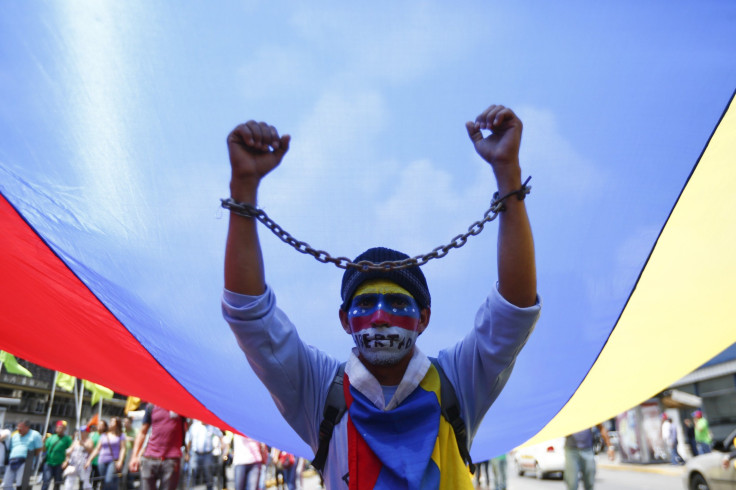Venezuela: Nicolas Maduro Supporters, Opponents Stage Rival Protests

(Reuters) - Red-clad "Chavistas" rallied in central Caracas on Saturday to protest the killing of a young ruling party lawmaker, while across town a protest called by the opposition's new leader failed to attract as big a crowd.
The government says the stabbing to death of the 27-year old Robert Serra in his home earlier this month is part of a wider plot by an elitist, self-interested opposition to bring down Venezuela's socialist experiment, created by beloved late president Hugo Chavez.
"Do you know why they killed Robert Serra?," President Nicolas Maduro said at the rally in front of a podium emblazoned with the slogan "Against terrorism".
"To silence us! The right-wing fascists are scared of young rebels, young revolutionaries," said Maduro, clad in a yellow, blue and red Venezuelan tracksuit.
Several arrests have been made in Serra's case, including one of his bodyguards. Maduro has also blamed Colombian paramilitaries, although some media say the case looks like an inside job and Venezuelan opposition leaders deny involvement.
Critics say Maduro, whose popularity has slipped, is seeking to capitalize on the crime to distract from shortages of basic goods, sky-high crime rates and 60 percent annual inflation.
"I'm here because I'm against the Venezuelan right's fascist activities," said Rosario Carabello, a 37 year-old employee at a government scholarship foundation. Carabello wore a t-shirt with the face of Chavez among a crowd whipped up by traditional 'joropo' music and speeches.
A few miles away in East Caracas, the Democratic Unity (MUD) opposition coalition held its first protest since several months of demonstrations that petered out in May.
"What Maduro has done is incentivize hate," said Manuel Castro, a 35 year-old administrative assistant for the opposition government of the state of Miranda.
Castro said he cannot find diapers for his child, has been robbed several times and struggles to make ends meet because of inflation.
But the opposition event only drew a couple of hundred supporters, a far cry from the thousands at the pro-government march, albeit many bused in by state vehicles.
Many hardline opposition protesters are tired or demoralized, while moderates feel demonstrations are a nuisance that fuel accusations they are coup-mongerers.
"I hope people wake up," said 18 year-old student Christopher, who was draped in a Venezuelan flag. He declined to give his last name because he said he feared repression.
The MUD is seeking to regroup and drum up support after the protests, which left 43 people dead, with victims on both sides.
MUD's inner divisions, a brief 2002 coup against Chavez, and a reputation for elitism have also long hung over it.
The MUD named Jesus Torrealba, a 56-year-old journalist, teacher and activist for the poor, to unite opposition factions and prepare for 2015 parliamentary elections.
"Today the people are showing that we can unite again and fight to recover democracy," Torrealba said during the rally.
(Reporting by Alexandra Ulmer; Additional reporting by Girish Gupta; Editing by Andrew Cawthorne and Grant McCool)
© Copyright Thomson Reuters {{Year}}. All rights reserved.





















